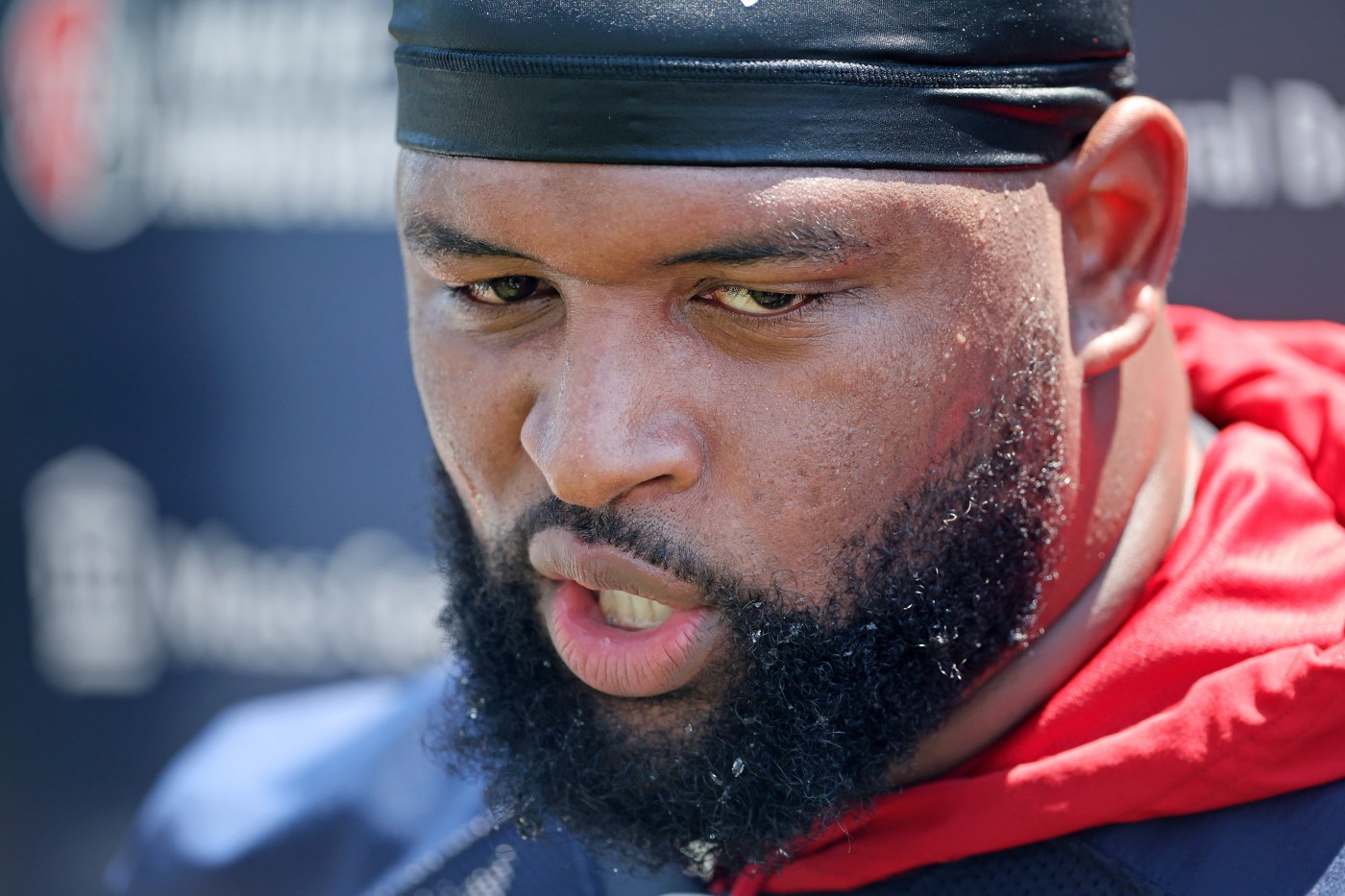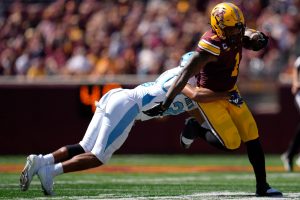
Massachusetts state rep tells Patriots to ‘stop complaining’ about millionaire’s tax
With the Patriots set to kick off their season in Cincinnati on Sunday, a Massachusetts state representative has told players to “stop complaining” about the ‘millionaire’s tax’ and focus more on “winning ballgames.”
State Rep. Michael Connolly, D-Cambridge, took to social media ahead of Week 1, slamming Patriots players and former head coach Bill Belichick for arguing that the 4% surtax on incomes over $1 million makes it hard for New England to compete and attract top free agents.
“What’s been overlooked in the discourse is the fact that NFL Players don’t pay all their state taxes in the state where their team is located,” Connolly wrote. “Their state taxes are assessed and apportioned in each state where they compete.”
“What this means is this entire argument — put forward by Trump supporters, conservative media, and ‘Americans for Tax Reform,’ et al. — is way, way overblown,” he added. “While it’s true our new millionaire’s tax puts a 4% surcharge on annual income over $1 million, the fact is the actual overall impact on Patriots players and other Boston professional athletes is significantly less than that.”
Athletes from no-state-income-tax states pay Massachusetts state income tax for games played at Gillette.
Players from places like Florida or Tennessee who play once a year in Foxboro, though, won’t make enough in that one-game check to hit the 4% millionaire tax threshold unless they make more than $17 million per season, Herald sports columnist Bill Speros wrote in an Aug. 30 column.
Those who live outside the Bay State but play for the Patriots are considered full-time residents by the Massachusetts Department of Revenue if they have a residence here (i.e. an apartment) and work in the Commonwealth for more than 183 days per year, Speros added.
“If the Patriots ever win another postseason game and play deep into January,” he wrote, “it could be costly come tax time given the lengthy NFL calendar.”
The Tax Foundation, a nonpartisan tax policy nonprofit, found that Patriots players whose annual salary is $20 million or more will have at least $1.7 million taken away in taxes. A $10 million annual salary means $874,059 will be knocked off in taxes, the foundation’s data show.
Belichick, whose 24-year legendary 6 Super Bowl tenure ended in January, brought the debate over the impact the millionaires tax has on New England to light in an interview on ESPN’s “The Pat McAfee Show” in late August.
“It’s Taxachusetts,” Belichick said. “It’s not like Tennessee or Florida or Nevada or some of these teams that have no state income tax. You get hit pretty hard on that with the agents — they’ll come and sledgehammer you down about the types of taxes they’re paying. We don’t get any benefit from that.”
The Patriots lost out on bringing in free agents DeAndre Hopkins and Calvin Ridley the past two offseasons, with the wide receivers electing to sign with the Titans. Tennessee being tax-free was reportedly part of their decisions
But the state of the millionaire’s tax isn’t the reason why other top free agents have decided to sign elsewhere; case in point: San Francisco wide receiver Brandon Aiyuk.
Aiyuk reportedly received an offer from New England of $32 million per year over four years, but he decided to stay with the 49ers in California, the state with the highest income taxes in the NFL, at 13.3%.
“Aiyuk did not want to go play for New England is what I was told,” The Athletic’s Dianna Russini said on a podcast last month. “He does not believe the quarterback position is at the level that he wants it to be at right now, and he wants to be on a team that he believes can make a run in the playoffs.”
Patriots defensive linemen Davon Godchaux and Keion White sided with Belichick. They said they are not fans of the millionaire’s tax two days after their former coach’s comments sparked a firestorm on social media.
“Nah, you know what pissed me off too? When I got here they got that extra 4% millionaires tax out here, too,” White said on Godchaux’s “ChauxTalk” podcast on Aug. 28. “That’ll get you too.”
Godchaux responded, “Absolutely. Massachusetts is bad with state taxes, too. It’s terrible. It’s right up there with New York and LA. I just heard Bill Belichick spoke about it … how it was tough to sign free agents in Massachusetts because of the state tax.”
“I mean guys these days, if you can sign with a team with no state tax, then go ahead and sign with them because that’s more money you keep in your pocket,” the defensive tackle added.
White, a 25-year-old defensive end picked in the second round of the 2023 NFL Draft, signed a four-year, $7.7 million contract last summer. Godchaux, 29, agreed to a two-year extension worth up to $21 million, with $16.5 million in guaranteed money, last month.
The “millionaires tax” voters approved in November 2022 delivered roughly $2.2 billion last fiscal year, a massive haul that shot past original projections set by Gov. Maura Healey’s administration.
Massachusetts budget writers said in August that the 4% surtax on incomes over $1 million generated hundreds of millions more for transportation and education projects than expected during its first full year on the books.
“At least ten other NFL franchises — many of them very successful — face higher state tax burdens than we do,” Connolly wrote in his X post. “So, our players and coaches should stop complaining about paying their fair share in taxes and just try to stay focused on winning ballgames.”

